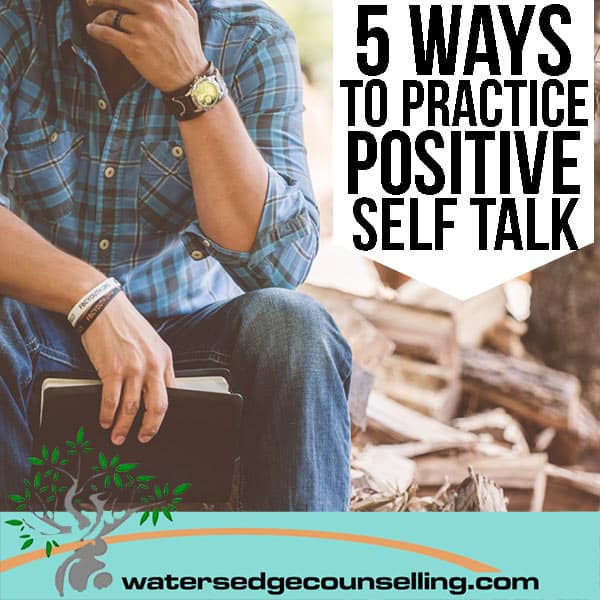
One of the first strategies I ever learnt in counselling was self talk. Initially it sounded strange—who talks to themselves? But I soon found it was one of the simplest ways to overcome fear and anxiety in my own life.
Though we don’t talk about it, we all have our own inner monologue. Whether we think, “I looked stupid,” “I hope they like me,” or “I feel confident today,” it’s what goes through our heads each day. And the monologue you have will depend on the truths and lies you have believed about yourself.
Self-talk challenges this monologue and enables us to change our thinking and our behaviour. Here are five ways you can practice it in your own life.
-
“I am enough”
Many people struggle with feelings of inferiority and have a fear of rejection. You may have grown up feeling like you had to compete for attention, or had words spoken to you by significant figures, stating that you were worthless, a failure or would amount to nothing in life.
When you feel this anxiety and loneliness, repeat these words to yourself: “I am enough”. You won’t believe them straight away, but use these words to give you confidence that you will get through your circumstances. As you keep saying these words and outliving them, eventually you will believe them about yourself.
-
“I am brave”
Are you afraid of a certain person, an activity or an environment? Repeat the words, “I am brave,” to yourself, and challenge your inner monologue that says you are fearful, inconsequential and should be taken advantage of.
Follow these words by doing what you are afraid of—speaking up for yourself, leaving a poisonous relationship, or trying something new. You will enforce your self talk and soon, you will realise that you are incredibly brave and do not have to let fear control you.
-
“I am worthy”
Do people take advantage of you, speak down to you or say that everything they do wrong is your fault? Repeat the phrase, “I am worthy,” so you begin to believe that you deserve better than this. By simply existing, you are worthy of love, respect, value and feeling safe.
Next time someone challenges this belief, stand up for yourself. You don’t have to waiver or be fearful that you are ‘wrong’ to speak up. You are worthy of having a voice and being heard.
-
“I am responsible for my actions and feelings”
If you struggle to take responsibility for your actions or words, begin to repeat this phrase to yourself: “I am responsible for my actions and feelings ”. By saying this, you break the cycle of blame and empower yourself to change your circumstances.
Saying these words does not make you entirely responsible for a situation or excuse the behaviour of another; it just allows you to take control of what you can change. When you take responsibility for yourself, you can begin a new chapter in your life.
-
“I can do this”
These are simple words, but if you doubt yourself or are unconvinced you can overcome a situation, addiction or behaviour, then saying, “I can do this,” will compel you to move forward.
Challenge your inner belief that says you are a failure, and repeat this phrase to yourself before you go to a significant appointment, have cravings, or are ready to run away and live in denial.
Do you struggle with your inner monologue? Would you like to learn more about positive self talk? Contact Watersedgecounselling on 0434 337 245 for a FREE 10-minute phone consultation on how we can best help you or press book now.
Leave a Reply